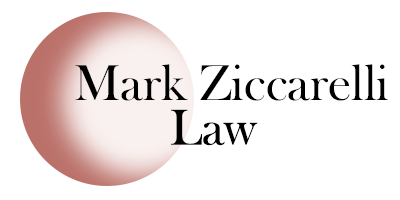Social Security Benefits and Covid 19
The Federal Government provides certain social security benefits to people who have disabilities caused by injury or illness impacting their ability to work. When a person is unable to work due to a physical disability or a mental health condition, he or she may be entitled to receive social security benefits provided by the Government. The two different types of social security benefits are: Social Security Disability Insurance (SSDI) and the Supplemental Security Income (SSI), administered through the Social Security Administration (SSA). Though both of these are Federal Government programs, they are distributed through state agencies.
The main difference between SSDI and SSI is based on the work history of the applicant. SSI is provided to those who are disabled and do not qualify for SSDI. After a person applies for benefits under either program, the SSA collects medical and other information to determine if a person is disabled on not.
Social Security Disability Insurance (SSDI)
Social security disability benefits are provided under the Federal Social Security Act. The SSDI provides benefits to a person and certain family members of that person depending on the person’s work history. The person applying must be ‘insured’, which means that the person should have worked long enough and recently enough and paid social security taxes on his or her income as required under the law. The benefits are provided depending upon a person’s work history, financial condition and medical needs. The following family members may qualify for SSDI:
- Spouse
- Divorced spouse
- Children
- Disabled child
- Adult child disabled before age 22
Disability under SSDI
The definition and meaning of disability under the SSDI is different and stricter than other government programs. It only recognizes total disability and no benefits are paid in case of partial or short term disability. A person is considered as disabled if:
- Such person cannot perform the work he or she performed before,
- Such person cannot adjust to other work because of medical conditions, and,
- The disability had lasted or is expected to last for at least one year or lead to death.
Supplemental Security Income (SSI)
Unlike the SSDI, SSI does not require a person to be previously employed in order to claim benefits. Rather, the benefits under the SSI are intended to help those who otherwise don’t have enough means to pay for their basic necessities on a regular basis. It provides benefits to those people who failed to qualify for SSDI. Benefits provided under SSI may include cash payments, medical coverage or both to meet the basic needs such as food, clothing, and housing.
Eligibility under the SSI
Unlike the SSDI, the SSI does not depend on the prior work history of the person who wants to apply for the benefits. Subject to one’s financial condition and certain residence requirements, a person may be entitled to receive SSI benefits if the person is:
- Disabled, has low income and limited assets and has not worked before or has not worked long enough.
- Disabled who is aged 65 or more, has low income and limited assets.
- Blind and has a low income and limited assets.
- A child under the age of 18, has physical, mental or medical conditions that cause severe disability and limitations to complete daily tasks or has a medical condition that is fatal or expected to last for 12 months or more.
Social Security Benefits and Covid-19
Will I still receive my social security benefits during the pandemic?
If your SSDI or SSI claim was already approved prior to the outbreak of the pandemic, you will continue to receive benefits though direct deposit or United States postal services. Individuals can switch from receiving payments through mail to direct deposit through the SSA website.
Can I still apply for Disability Benefits or apply for reconsideration?
The initial application for disability benefits or reconsideration applications can be completed online or via phone. Otherwise, a person cannot enter SSA offices without prior appointment. An in-person appointment will be given only in dire need situations. Dire need exists when a person:
- Is without food, shelter, utilities or medical care and needs to apply for or reinstate benefits.
- Is currently receiving benefits and has urgent need for payment, but is unable to receive payments electronically.
What will happen to my scheduled hearing due to Covid-19?
If you already have an in-person meeting scheduled, the SSA may contact you regarding the alternate options or if you’ve not heard from them, it is advisable to contact them. Judges may also choose to reschedule or postpone the hearing depending upon the circumstances. The outcome of a benefits claim has be hugely impacted by online hearings, therefore, it is advisable to contact an attorney who will guide you through the different alternatives available and determine the best option for you.
More information about Covid-19 resources related to Social Security Administration can be found at: https://www.ssa.gov/coronavirus/.
Contact us
Applying for social security benefits is a challenging and difficult process and the applications can be rejected at the initial step only if not filed properly. The ongoing pandemic and the online hearings have made the process more complicated. The government has put in place stringent safeguards to ensure that false claims are not made. At our firm, we help our clients to make comprehensive SSDI and SSI applications and also help them with different appeals that are available under the law if their application was rejected for the first time. We help our clients gather medical and other important evidence to help them through the application process.
If you or your loved one has suffered a disability or cannot work due to a disability, contact our firm today to know what are your options and we will be happy to help you.
More information about SSDI and SSI can be found at: https://www.ssa.gov/.

